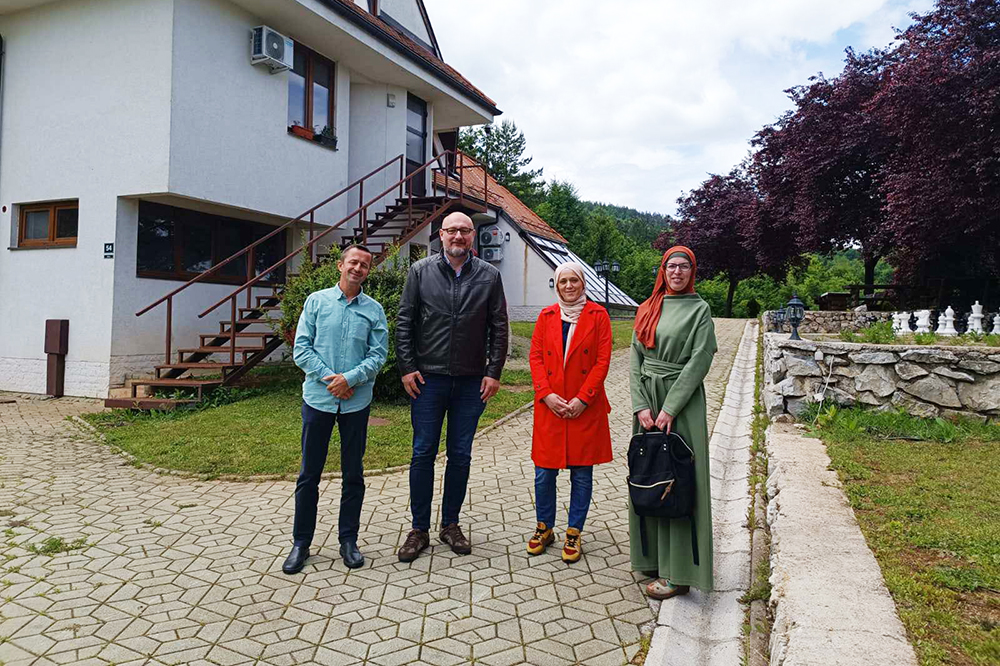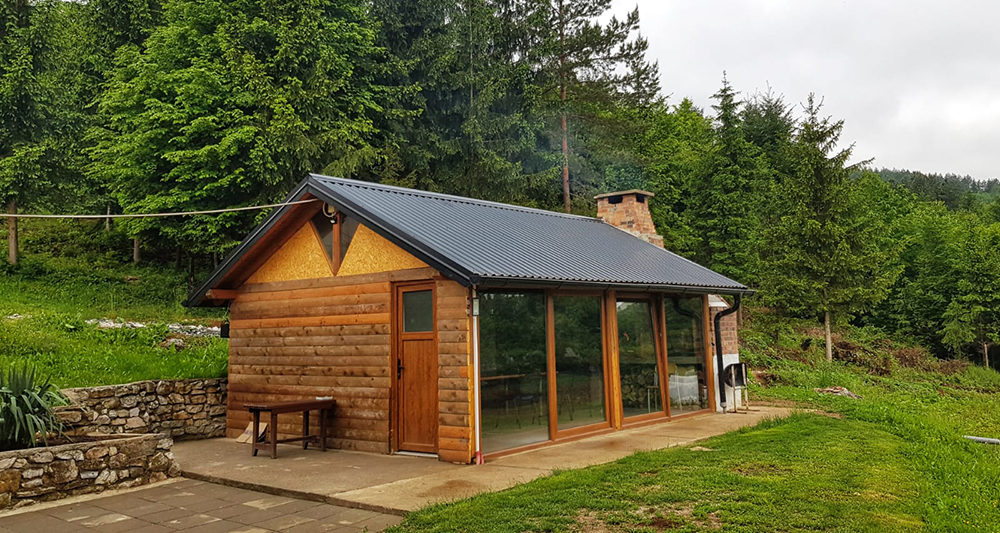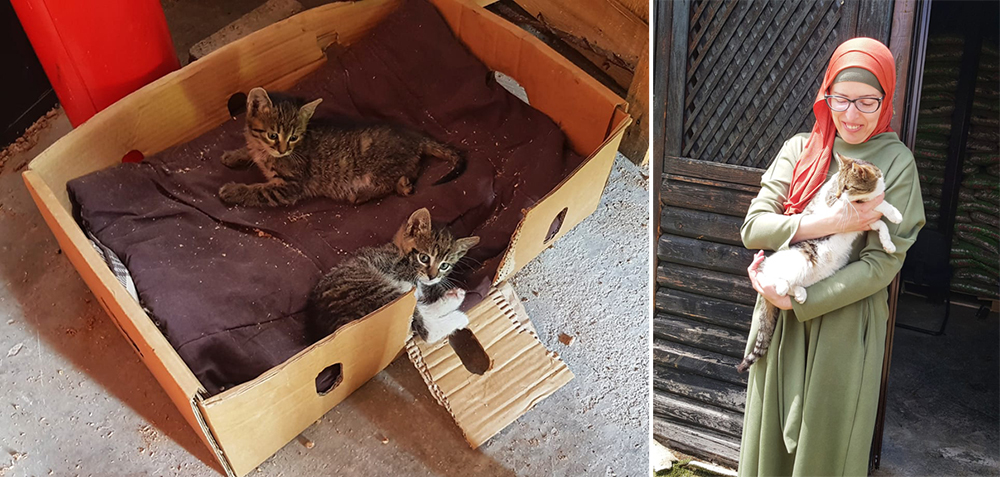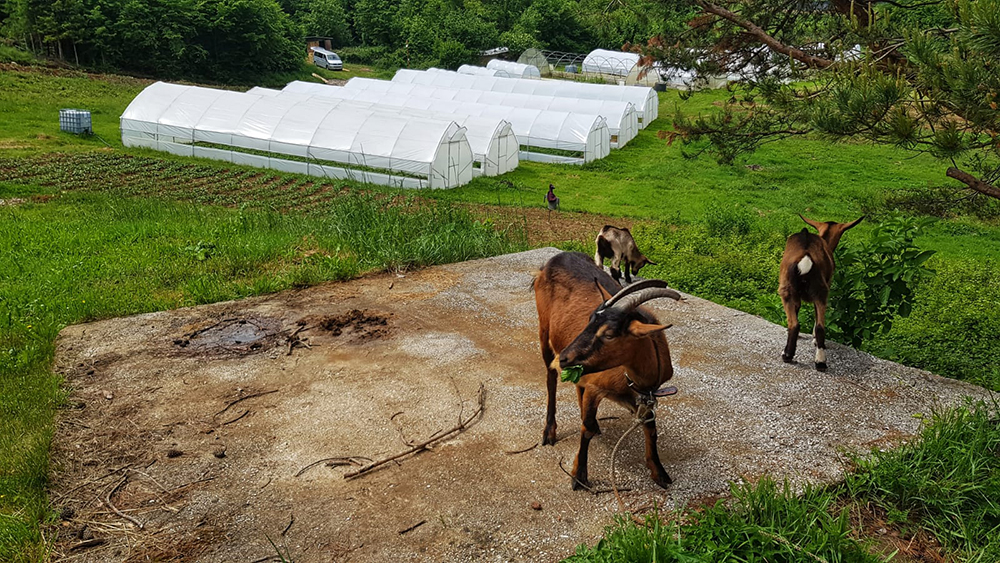Yesterday, the director of the "Second" Foundation, Belma Mujezinović, visited the Kampus Therapeutic Community in Rakovica, located 15 km from Sarajevo. This visit provided an opportunity for the exchange of experiences and support, and it allowed insight into the work of this unique institution dedicated to the treatment of substance addiction.

She was welcomed by the Campus director, Adis Hadžić, the head of the Department for Psychosocial Assessment of Users and Analytical Affairs, Šahim Kahrimanović, and the social worker Edina Memišević.
The Kampus Therapeutic Community, established by the Sarajevo Canton Assembly in 2003, is the first institution of its kind in Bosnia and Herzegovina founded by the state. With its high-quality work program, implemented by qualified and professional staff, it provides treatment and accommodation for 20 addicts. Unfortunately, there is currently no separate space for the accommodation of girls and women.
"In conversation with the management team, I learned that they would like to have a 'Women's House' where female addicts who need the help of such an institution could be accommodated and treated. I hope that in the future, through the 'Second' Foundation, we will be able to support the construction and equipping of such a house," said Belma Mujezinović.

Kampus is a true miniature society in which users and staff have clearly defined roles, designed to improve the process of gaining insight and establishing changes in users. Located in the idyllic rural surroundings of Rakovica, Kampus provides a safe space for recovery.
With the support of professional staff, a tailored program, and a beautifully designed environment, users have the opportunity to overcome addiction and learn new skills that will benefit them in life after treatment.
During the visit, director Belma Mujezinović had the opportunity to tour the Kampus, as well as to socialize with the goats and cats living within the community, cared for by both users and staff. This interaction with animals, an integral part of the therapeutic process, provided her with insight into one of the aspects of treatment that makes Kampus unique.

The treatment program at Kampus consists of residential and non-residential components. The residential part includes three phases: adaptation, rehabilitation, and resocialization. The treatment program is conducted with the assistance of occupational therapists, psychologists, social workers, sociologists, sports therapists, and medical staff.
Various work and occupational activities are organized to help users develop new work habits and skills and to spend their time in a structured manner. Additionally, regular individual and group therapy sessions with psychologists and social workers help users gain insight into their behavior and emotional states.
Furthermore, sports and recreational activities are organized, while medical staff monitor the health status of users and conduct regular check-ups to prevent or treat any health issues.

One of the important aspects of treatment at the Kampus Therapeutic Community is the provision of family therapy, which is crucial for the successful reintegration of users into society after completing treatment.
Users are active participants in the therapeutic process and bear the main responsibility for achieving personal growth and progress towards a more fulfilling life. After completing the residential part of the treatment, users can participate in a support program to facilitate their reintegration into society.
The visit of Belma Mujezinović, director of the "Second" Foundation, to the Kampus Therapeutic Community marks the beginning of establishing cooperation in providing support to individuals in need of a second chance in life through recovery in such an institution and their return to society.
